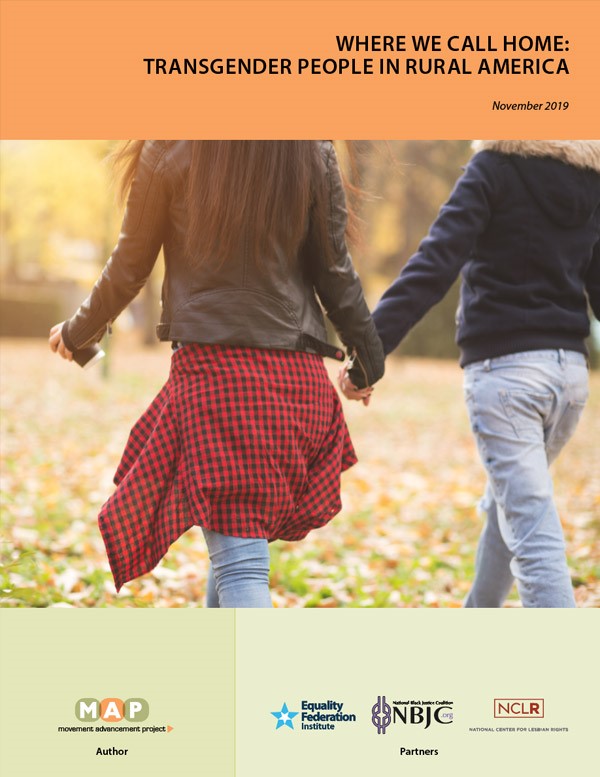Stereotypes and pop culture portrayals often overlook the diversity of rural America, framing rural regions as made up predominantly of white, politically conservative people who are hostile to LGBT people. But millions of LGBT people, including transgender people, live in rural communities—and while some struggle, others thrive. The Movement Advancement Project (MAP) released a new report,
Where We Call Home: Transgender People in Rural America, which includes original analysis of the unique challenges and opportunities for transgender people in rural America. As the third publication in the
Where We Call Home series, this report details how the structural differences of rural life amplify acceptance of or discrimination against transgender people.
This report, which includes original analysis of the 2015 U.S. Transgender Survey (USTS), offers extensive new findings on transgender people in rural communities. Although experiences of discrimination are typically as common in rural areas as in urban areas, structural challenges in rural areas, such as fewer employment or healthcare options, means the impact of discrimination on the lives of rural transgender people may be particularly profound. For example, rural transgender people are more than two times more likely—and rural transgender people of color are nearly four times more likely—as the general rural population to be unemployed and living in poverty, despite being more likely than their rural neighbors to have a college degree. The report concludes with recommendations for community organizations, educators, healthcare providers and policymakers to address the specific needs of transgender people in rural communities. Because transgender people in rural communities face significant obstacles to accessing and receiving care, improving access to transgender-inclusive health care that is both affordable and culturally competent is vital to adequately serving transgender patients. Additionally, passing and enforcing transgender-inclusive nondiscrimination laws, as well as repealing discriminatory laws that disproportionately harm transgender people, will help to improve the quality of life for transgender people in rural America. Where We Call Home: Transgender People in Rural America: ReportDownload
Folleto Comunitario Rural (Español)Download
To access all our resources and research on LGBT people in rural communities, visit our
rural topic page.
Recommended citation:
Movement Advancement Project. November 2019.
Where We Call Home: Transgender People in Rural America.
www.lgbtmap.org/rural-trans. [Date of access].


